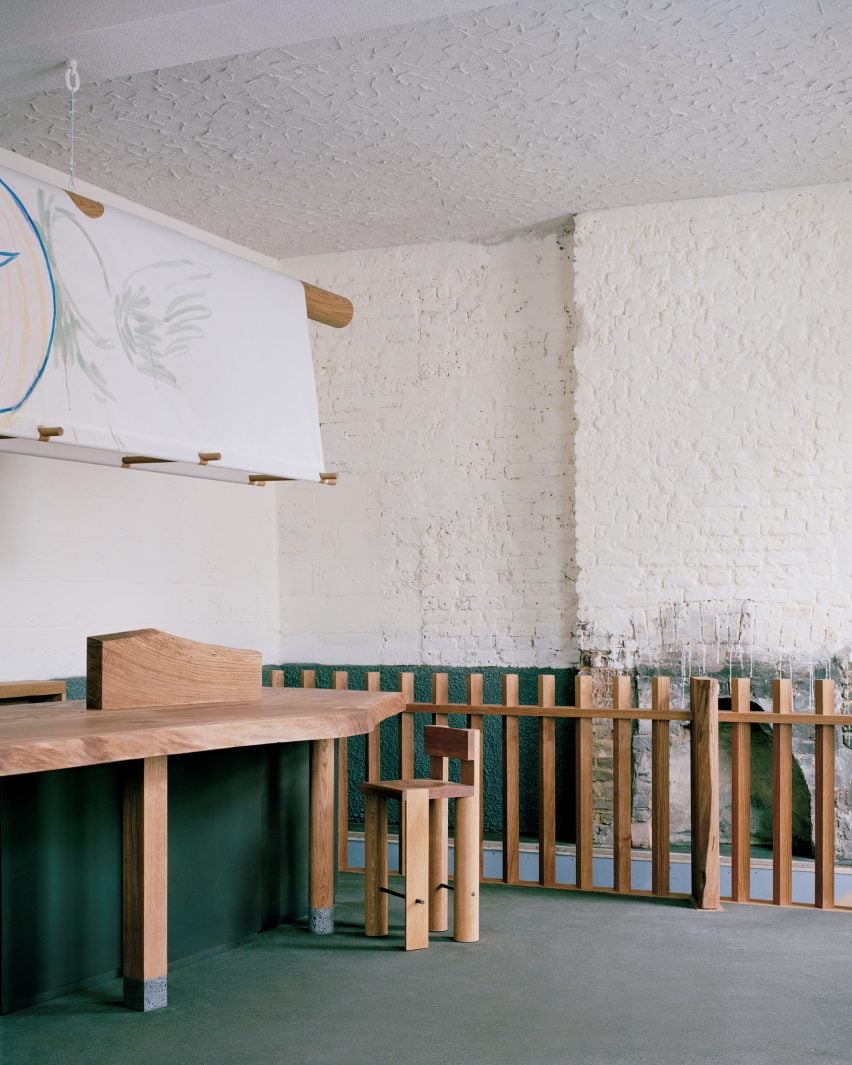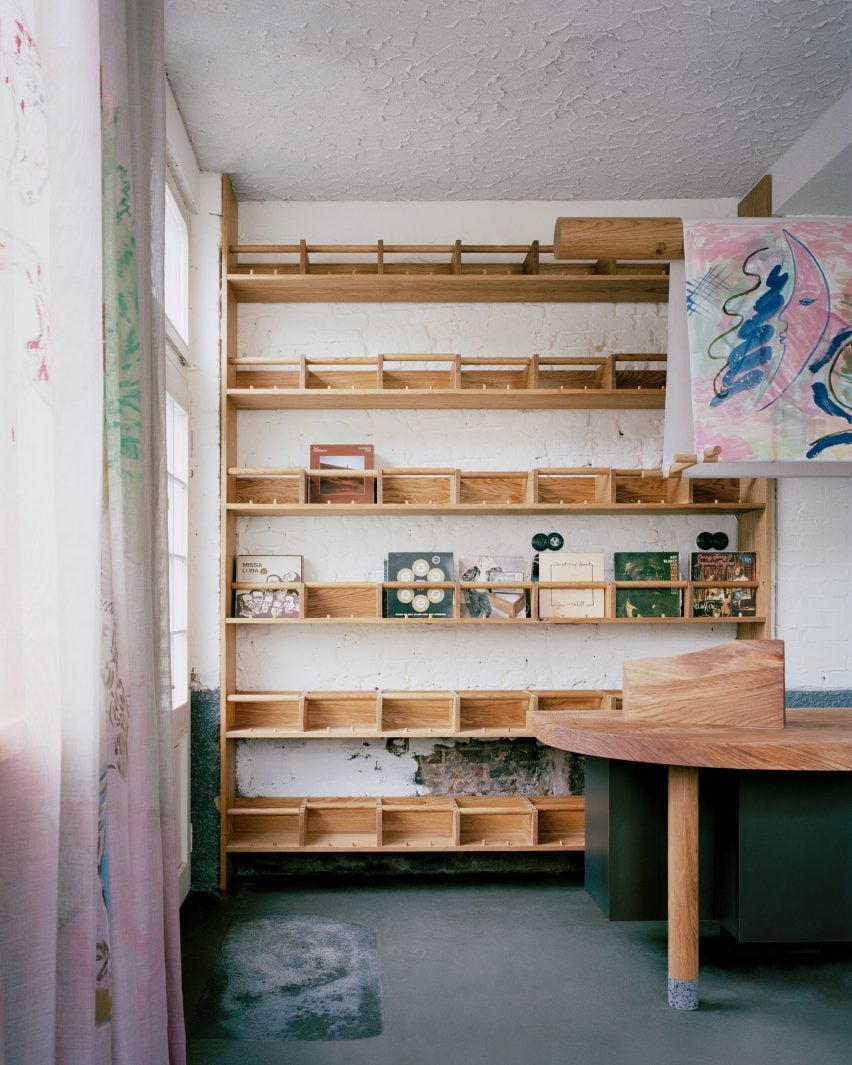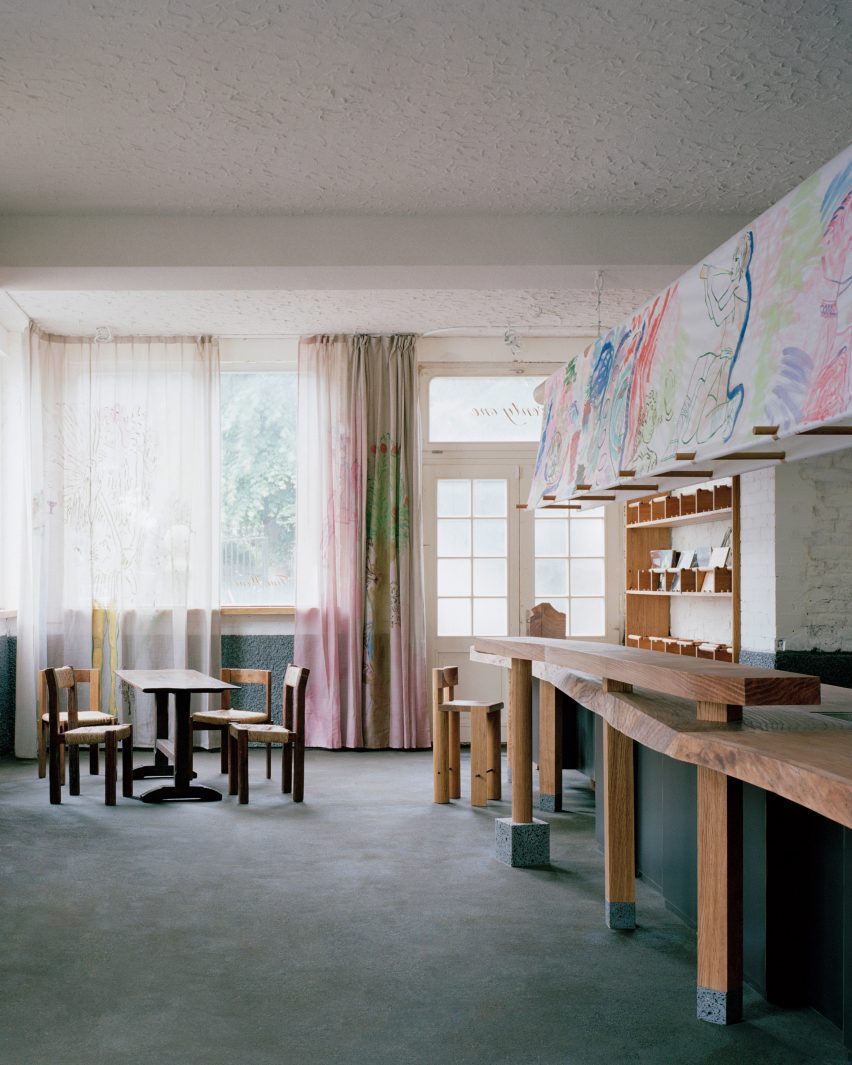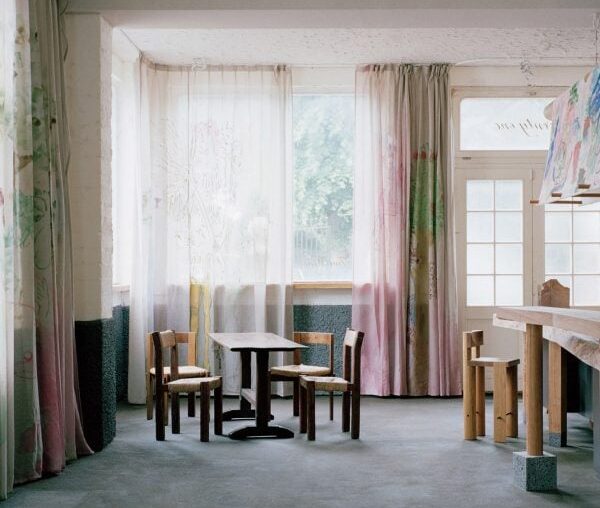Swiss studio Leopold Banchini Architects used natural materials when creating the interior of the Goodbye Horses bar, with the bar, chairs, lights, handrails and changing table all made from a single tree.
Located in east London’s De Beauvoir neighbourhood, Goodbye Horses is a local wine and listening bar that was designed by Leopold Banchini Architects to reference classic English pubs.

“The aim was to create a contemporary space deeply rooted in the long-lasting tradition of English pubs,” studio founder Leopold Banchini told Dezeen.
“As in most pubs, the space revolves around a central wooden bar,” Banchini continued. “In this case, the long wooden structure is a bar, a cooking counter and a table; thus, the relation between staff and customers is less constrained.”

This nod to tradition can also be seen in the other materials chosen by Leopold Banchini Architects for the 95-square-metre bar, which also has a basement of the same size.
Its walls were painted with limewash and roughcast render, while the ceiling was covered by a hand-textured lime plaster.
“The pub is mainly built with natural materials referring to the history of British pubs,” Banchini said. “The wooden elements are built using solid English oak.”
“The natural textures, imperfections and oxidations create the atmosphere of the space,” he continued. “Over time and through their usage, these materials will only become more lively.”

The ground-floor space features a ten-metre-long bar that has an unusually low design and which, together with the surrounding furniture, was built from the trunk of just one oak tree.
“In order to build the long table out of a single plank, we were looking for a tree with a circumference of about 120 centimetres,” Banchini explained.
“Once we found it, the trunk was large enough to produce all the elements of the pub – the bar, chairs, lights, handrails and changing table,” he added. “The oak tree had been cut half a century ago in Croatia and was transformed by Italian carpenters.”
The listening bar also has custom-made shelves that hold vinyl records.

Goodbye Horses’ floor was made from beaten earth – a mix of soil, straw and clay with a natural linseed oil coating. The material was chosen for both its sustainable and its acoustical properties.
“Beaten earth floors were traditionally used in rural pubs and we liked the idea to revive this amazing material,” Banchini said.
“Clay floors are not only beautiful and ecological, they also have interesting acoustical properties,” he added. “Being a listening bar, all the materials – clay, cork, wood and textured lime plaster – were selected to create good acoustical conditions.”

In the garden and the parts of the floor with the heaviest traffic, the studio added reclaimed Yorkstone slabs. The interior also features hessian curtains, which surround the space and were handpainted by artist Lucy Stein.
“Inspired by British folklore and mythology, the natural stain on the fabric filters the light entering the pub as stained glass windows in the past,” the studio said.
Other recent listening bar designs featured on Dezeen include Space Talk in London and a Sydney bar designed to feel like being “inside a giant speaker”.
The photography is by Rory Gardiner.
Project credits:
Architecture: Leopold Banchini Architects
Carpentry: DiSe

